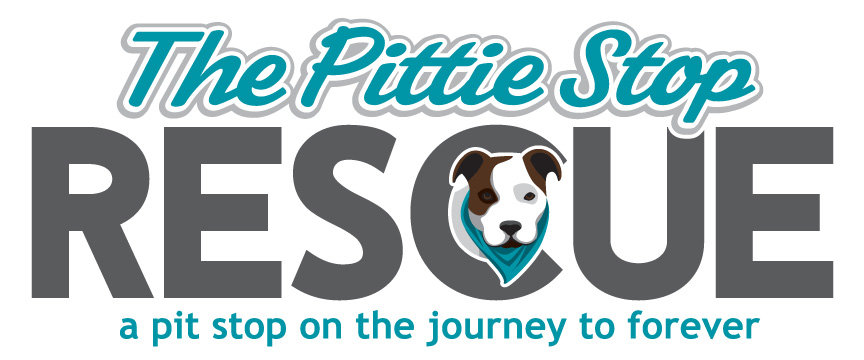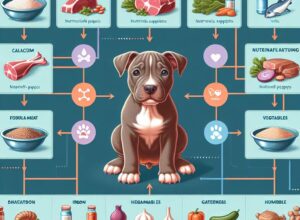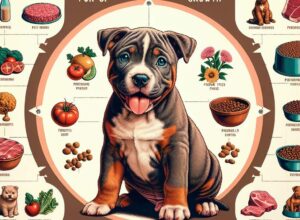
When it comes to raising a healthy and well-behaved pitbull puppy, diet plays a pivotal role. Just like in humans, the food we give our furry friends can have a significant impact on their mood, energy levels, and overall behavior. As a pet owner, it’s crucial to understand this connection to ensure your pitbull puppy grows up to be a happy, well-adjusted member of your family.
Key Takeaways
-
A balanced diet is essential for pitbull puppies to develop healthy behaviors.
-
Ingredients in your puppy’s food can influence mood and aggression levels.
-
Regular feeding schedules and appropriate portions are key to behavioral wellness.
-
Transitioning to new foods should be done gradually to avoid digestive upset.
-
Always consult with a veterinarian before making changes to your puppy’s diet.
Common Behavioral Issues and Dietary Influences
Before diving into the specifics of a pitbull puppy’s diet, let’s first address some common behavioral issues that might be influenced by nutrition. These can range from aggression to hyperactivity, and even stress or anxiety. Recognizing these behaviors is the first step in understanding how diet may be playing a part.
Aggression and Food Choices
Aggression in pitbull puppies can sometimes be linked to their diet. For instance, foods high in sugar and carbohydrates can cause spikes in energy that may lead to irritability or aggressive behavior. Instead, a diet rich in proteins and healthy fats can help maintain steady energy levels and a calmer disposition.
Hyperactivity and Diet Correlation
Hyperactivity can also be a sign that your pitbull puppy’s diet isn’t quite right. Like aggression, hyperactivity can be fueled by diets with excessive additives, sugars, and fillers. A diet with balanced nutrients supports a more even-tempered and focused pup.
Stress, Anxiety, and Nutrition
Stress and anxiety in dogs can sometimes be alleviated by dietary changes. Nutrients like omega-3 fatty acids found in fish oil can support brain health and lead to better stress management. Also, diets lacking in essential vitamins and minerals may contribute to anxiety, so it’s important to feed your puppy a well-rounded diet.
Implementing a Balanced Diet Plan
Step-by-Step Guide to Transitioning Foods
If you’ve noticed any behavioral issues in your pitbull puppy, or if you’re simply aiming to prevent them, a diet change might be in order. Here’s a step-by-step guide to help you transition your puppy to a new, balanced diet:
-
Consult with a Vet: Before making any diet changes, talk to your vet to ensure the new diet will meet your puppy’s nutritional needs.
-
Choose High-Quality Food: Select a high-quality puppy food that lists real meat as the first ingredient and is free from fillers and artificial additives.
-
Introduce Slowly: Gradually mix the new food with the old, increasing the proportion over a week to prevent digestive upset.
-
Monitor Your Puppy: Keep an eye on your puppy’s behavior and health as you transition foods. If you notice any adverse reactions, consult your vet.
Remember, sudden changes in diet can cause stomach issues, so take it slow and steady.
Feeding your pitbull puppy the right food is about more than just keeping them full; it’s about nurturing their body and mind. In the next sections, we’ll dive deeper into the proactive steps you can take to ensure your puppy’s diet supports their best behavior.
Homemade vs. Commercial Foods
When deciding between homemade and commercial foods for your pitbull puppy, consider the nutritional completeness and convenience of each option. Homemade diets allow for full control over the ingredients, ensuring that your puppy receives whole, unprocessed foods. However, creating a balanced homemade diet requires careful planning and knowledge of canine nutrition.
Commercial puppy foods, on the other hand, are designed to be nutritionally complete and convenient. They are formulated to meet the needs of growing puppies, including specific breeds like pitbulls. When choosing commercial food, opt for premium brands that prioritize high-quality protein sources and avoid unnecessary fillers.
Whether you choose homemade or commercial, the goal is to provide a diet that supports your puppy’s growth and behavior. If you’re unsure which route to take, consult with a veterinarian or a canine nutritionist for guidance.
Monitoring Behavior Changes
After adjusting your pitbull puppy’s diet, closely monitor them for any changes in behavior. Positive changes might include more consistent energy levels, less aggression, and a calmer demeanor. Keep a log of these observations, as it can help you and your vet understand the effectiveness of the dietary changes. If you notice negative changes or no improvement, it may be necessary to reassess the diet or look for other factors influencing behavior.
Proactive Pitbull Puppy Nutrition
Proactively managing your pitbull puppy’s diet is the best way to prevent behavioral issues before they start. This means not only choosing the right food but also being mindful of feeding schedules and portion sizes. A consistent routine helps regulate your puppy’s digestion and energy levels, which can, in turn, influence their behavior.
Prevention of Future Behavioral Issues
Preventing future behavioral issues starts with nutrition. A diet lacking in essential nutrients can lead to health problems that manifest as behavioral issues. For example, deficiencies in B vitamins can result in irritability, while an imbalance in calcium and phosphorus can affect bone growth and lead to discomfort and associated aggression.
Importance of Consistency in Feeding
Consistency in feeding goes beyond just what you feed your pitbull puppy; it also includes when and how often. Puppies generally require multiple meals throughout the day to support their rapid growth and high energy demands. Aim to feed your puppy at the same times each day to create a routine that stabilizes their energy and mood.
Supplements to Enhance Behavioral Health
While a well-balanced diet should provide most of the nutrients your pitbull puppy needs, supplements can sometimes be beneficial. For example, fish oil supplements rich in omega-3 fatty acids can support brain development and may improve cognitive function, which can positively influence behavior. Always consult with a vet before adding supplements to your puppy’s diet to ensure they’re necessary and given in the correct dosage.
The Link Between Diet and Pitbull Puppies’ Conduct
The food you provide your pitbull puppy can have profound effects on their conduct. Nutrients affect brain chemistry, which in turn influences behavior. A diet rich in the right balance of proteins, fats, carbohydrates, vitamins, and minerals supports optimal brain function and can lead to better behavior outcomes.
Furthermore, the consistency and quality of the diet can either contribute to or help prevent common behavioral problems. A poor diet can lead to health issues that may cause discomfort or pain, which can manifest as aggression or anxiety.
Feeding Your Pitbull Puppy for Optimal Behavior
Feeding your pitbull puppy for optimal behavior involves understanding their unique nutritional needs. These energetic and muscular dogs require a diet that fuels their active lifestyle while supporting healthy growth and development.
Understanding Nutritional Needs
Pitbull puppies need a diet that is higher in protein to support muscle development and energy. Look for foods that list a high-quality animal protein as the first ingredient. Puppies also require more calories per pound of body weight than adult dogs, but these need to come from nutritious sources, not empty fillers.
Essential Foods and Ingredients
To ensure your pitbull puppy gets the nutrition they need, their diet should include:
-
High-quality animal proteins (like chicken, beef, or fish)
-
Complex carbohydrates (such as sweet potatoes and brown rice)
-
Healthy fats (including omega-3 and omega-6 fatty acids)
-
Adequate fiber for digestive health
-
Vitamins and minerals for overall well-being
Keep in mind that while treats can be used for training and bonding, they should not make up a significant portion of your puppy’s diet.
Dietary Do’s and Don’ts:
-
Do consult your vet before making any dietary changes.
-
Do measure your puppy’s food to avoid overfeeding.
-
Don’t feed your puppy human food that could be harmful.
-
Don’t make sudden changes to their diet without a gradual transition.
By understanding the link between diet and behavior and taking proactive steps to manage your pitbull puppy’s nutrition, you can set the stage for a lifetime of good health and happiness. Remember, a well-fed puppy is a well-behaved puppy.
How Often Should I Feed My Pitbull Puppy?
Feeding frequency is crucial for your pitbull puppy’s health and behavior. Puppies have small stomachs and high energy needs, so they can’t handle a lot of food in one sitting. It’s best to divide their daily food intake into three to four meals. As they grow and their stomach capacity increases, you can reduce feeding to twice a day. Consistent meal times help regulate their digestion and can prevent behavioral issues like irritability or hyperactivity due to hunger.
What Foods Should Be Avoided for Behavioral Health?
For instance, a study found that diets high in protein and certain amino acids can promote better temperament in dogs. Conversely, diets with excessive fillers, artificial colors, and flavors may contribute to hyperactivity and attention problems.
When it comes to foods that can negatively impact your pitbull puppy’s behavior, there are several to keep in mind:
-
Excessive amounts of cheap fillers like corn and wheat can cause energy spikes and crashes.
-
Artificial additives and preservatives may lead to hyperactivity and attention deficits.
-
Sugary foods and high-glycemic carbohydrates can result in mood swings and aggression.
It’s important to read labels and choose a diet that supports steady energy release and balanced behavior. Opt for whole-food ingredients with minimal processing to ensure your puppy is getting the nutrition they need without the behavioral side effects.
Can Diet Really Affect My Puppy’s Behavior?
Research has shown that diets balanced in omega-3 fatty acids, antioxidants, and other key nutrients can lead to improved learning and better behavior in dogs.
Yes, diet can significantly affect your puppy’s behavior. The nutrients they consume contribute to their brain development, which in turn influences their mood and actions. A diet lacking in essential nutrients can lead to deficiencies that manifest as behavioral problems. For example, a lack of omega-3 fatty acids may impact cognitive function, and insufficient protein can affect energy levels and mood.
Therefore, it’s critical to choose a diet that provides a comprehensive balance of proteins, fats, carbohydrates, vitamins, and minerals to support your puppy’s overall health and well-being.
How Long Does It Take to See Behavioral Changes After Diet Modifications?
After making dietary changes, it may take a few days to a few weeks to notice changes in your puppy’s behavior. The body needs time to adjust to the new nutrients and for those nutrients to affect brain chemistry and behavior. Keep a close eye on your puppy during this transition period and take note of any positive or negative changes.
Most importantly, be patient. Dietary changes won’t produce overnight results, but with consistency and the right nutrition, you should see a gradual improvement in your puppy’s behavior.
-
Improved energy levels and focus may be observed within a week.
-
Reductions in aggressive or hyperactive behavior can take several weeks to become apparent.
-
Consistent, long-term dietary habits are key to lasting behavioral changes.
Is a Raw Food Diet Safe for Pitbull Puppies?
A raw food diet, often referred to as BARF (Biologically Appropriate Raw Food), can be safe for pitbull puppies if properly balanced and managed. Raw diets can provide natural sources of protein and nutrients without the additives found in some commercial foods. However, they must be carefully designed to ensure they meet all of your puppy’s nutritional needs.
It’s essential to research thoroughly and preferably work with a veterinary nutritionist when feeding a raw diet to avoid nutritional imbalances and potential health risks, such as bacterial contamination. If you’re considering a raw diet, here’s what you need to know:



